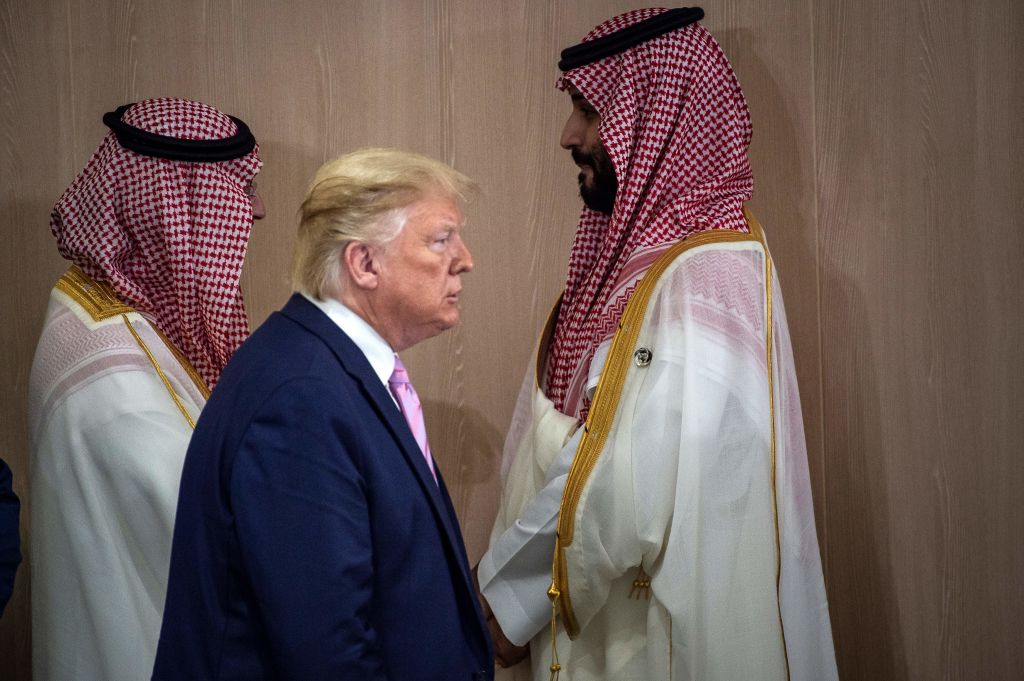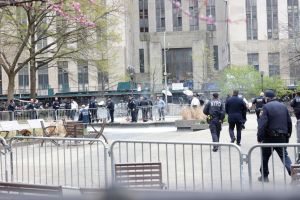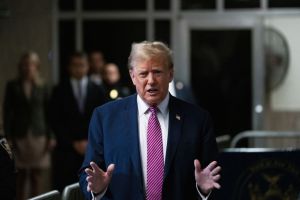It appears that the FBI’s search of Donald Trump’s Florida residence was just the tip of the iceberg. Indeed, the Bureau’s probe has been underway for months, and its decision to interview former White House lawyers suggests that law enforcement is not only interested in what was in the more than 700 pages of documents that Trump took, but also why he took them.
The Washington Post recently alleged that some of those documents are related to nuclear weapons. This has shone a light on Trump’s prior attempts to share sensitive nuclear technology with Saudi Arabia, a country that has flirted with building nuclear weapons. Could Trump’s friends in Riyadh have been due for one of his infamous quid pro quos?
History provides a guide. As early as 2016, Donald Trump Jr., Trump’s son, met with an emissary who offered Saudi and Emirati aid for his father’s presidential election. This was certainly not lost on Trump the elder, who places a premium on loyalty and bragged about the Saudis’ generous support for his business empire. As president, Trump returned the favor: his first international trip was to Saudi Arabia, and he later kicked Qatar, a close US military partner in the Persian Gulf, to the curb when Riyadh moved to punish its smaller neighbor for audaciously pursuing an independent foreign policy. The next year, Riyadh rewarded Trump by reducing oil prices after he defended the Saudis’ decision to sic a hit squad on Jamal Khashoggi, a journalist for the Washington Post.
This is hardly an exhaustive list of Trump and the Saudis’ symbiotic dealings. Trump also vetoed a bipartisan congressional effort to end US involvement in the war on Yemen, a signature Saudi initiative, and repeatedly bypassed Congress to sell the Saudis billions of dollars of American weapons (and fired the State Department’s inspector general for examining his actions).
This brings us back to the nuclear issue. In 2019, the House Committee on Oversight and Reform chronicled how the Trump administration was intending to “rush” sensitive nuclear technology to Saudi Arabia as part of a plan that began during the Trump presidential campaign.
Congress never got to the bottom of the alleged misconduct. The committee found that the administration’s work was “ongoing” (which makes one wonder, did it ever stop?), and administration officials not only denied wrongdoing but justified their actions in national security terms. “If the United States does not sell the nuclear equipment to Saudi Arabia someone else will,” administration officials privately told the New York Times in 2018. If this outlook was new at the time, it certainly isn’t now. In fact, the Trump administration so successfully reframed the US debate on great power competition that even President Joe Biden — who has sought to distance himself from everything Trumpian — explained his recent embrace of Saudi Arabia as necessary to halt Riyadh’s cooperation with Russia and China.
Trump officials are right: countries like South Korea, France, Russia, and China had been actively pursuing nuclear collaboration with the Saudis, and an American refusal to assist the Saudi nuclear program would have likely resulted in the United States losing market share to foreigners. Moreover, as Tristan Volpe has observed, the US has remarkably limited leverage when it comes to preventing its partners and allies from proliferating. As the Trump administration saw it, playing it “by the book” with a hostile Congress was not an option.
Be that as it may, there is more to Trump’s decision to back a lobbying effort by several US nuclear energy firms and Trump-connected politicos, including General Michael Flynn, Trump’s first national security advisor, and other retired military officials. One firm in particular, Westinghouse Electric, the only US manufacturer of large-scale nuclear reactors, was especially bullish on the deal. In 2018, Westinghouse’s parent company, Brookfield Asset Management, bailed out a floundering $1.8 billion building that was owned by the family company of Jared Kushner, Trump’s son-in-law. What role Kushner, who had built strong ties with the Saudi crown prince, ultimately played in the deal is unclear. The House committee’s report noted, however, that like Trump himself, Kushner was “directly involved” in the plot and the administration’s effort to develop a strategic partnership with the Saudis. Of course, that same relationship would be a key component of Kushner’s vaunted Middle East Peace Plan.
History may not repeat, but it certainly rhymes. Just this year, it was revealed that the Saudi Public Investment Fund, which is helmed by the Saudi crown prince, had invested $2 billion in Kushner’s private equity firm. Although the terms of the arrangement will pay Kushner a minimum of $25 million a year, it is apparent that Saudi Arabia wants to continue its client-patron relationship with the Trump family and inner circle — to everyone’s benefit. To be sure, Trump’s New Jersey golf club held a tournament in August 2022 that was sponsored by the same Saudi fund, provoking a protest by some families whose relatives had been killed on 9/11.
Trump knows a good business opportunity when he sees one. But would he really pilfer some of America’s most highly sensitive nuclear secrets to provide them to Saudi Arabia, as some have alleged? Much like the question of why Trump was hiding classified documents at Mar-a-Lago, it may be some time before we get answers. But the American people — and even Trump himself — deserve a speedy resolution. John Bolton, Trump’s third national security adviser, may be right: the mere existence of a piece of paper with “the word ‘nuclear’ on it doesn’t mean it’s apocalyptic.” But Trump’s obsession with nuclear weapons appears to have reared its ugly head again — with potentially deadly results.


















